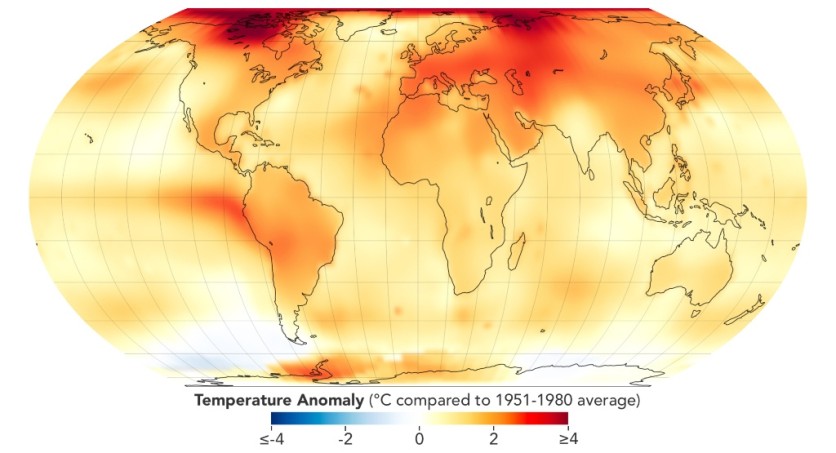NASA's Goddard Institute for Space Studies has recently declared 2023 the hottest year on record, sending shockwaves through the scientific community.
The announcement comes after an in-depth analysis of global average temperatures, revealing unprecedented heat levels that have scientists puzzled and concerned about the future of our planet.

Record-Shattering Temperatures and the 'Mysterious' Factor
From June to December 2023, every month claimed the title of the hottest month, with July standing out as the hottest ever recorded. Gavin Schmidt, NASA's top climatologist, expressed his concern, highlighting the mysterious processes behind this extreme temperature surge (via Phys.org).
Schmidt emphasized that 2023 not only broke records but broke them by an unprecedented margin. The year began with La Nia's cooling influence in the tropical Pacific lasted until March.
Surprisingly, the warm phase, El Nio, began to develop in May, causing global temperatures to rise far above expectations. According to Schmidt, while long-term trends induced by greenhouse gases are well understood, the 'plus something' in 2023 is a perplexing anomaly.
Read Also : US Greenhouse Gas Emissions Dip by 2% in 2023, Still Falling Short of Biden's Climate Pledge
What's Behind the 'Mysterious' Processes?
Scientists worldwide are grappling with hypotheses to explain these 'mystery' processes.
Schmidt revealed ongoing global discussions among researchers examining Earth's energy imbalances, aerosols, El Niño, and regional climate phenomena. The challenge lies in reconciling these factors, as the 2023 anomaly defies conventional explanations, leaving the scientific community with more questions than answers.
While El Niño has historically influenced global temperatures, the uniqueness of the 2023 event raises questions about its impact. Schmidt pondered whether this El Niño is exceptionally powerful or if atmospheric responses trigger an extraordinary outcome.
The lingering uncertainty surrounding these possibilities underscores the complexity of Earth's climate system.
Implications for 2024 and Beyond
The unpredictability of 2023 raises concerns about the trajectory of future climate patterns. If the abnormality of 2023 was a mere blip, 2024 may closely resemble its predecessor.
However, if systemic changes are underway, 2024 could bring even warmer temperatures, exacerbating weather extremes, heat waves, and coastal flooding.
Schmidt emphasized the urgency of understanding why 2023 deviated from expected patterns. The implications for accelerating climate impacts loom large, with potential consequences for ecosystems, agriculture, and human societies.
Ocean Warming, Aerosols, and Volcanic Eruption
Beyond the tropical Pacific, 2023 witnessed global sea surface temperatures setting new records. Long-term ocean warming, driven by rising greenhouse gases, played a significant role. However, decreased aerosols contributed to a slight warming effect globally, particularly due to reduced air pollution.
Contrary to expectations, the recent volcanic eruptions did not substantially contribute to the 2023 heat. While water vapor from the eruption had a warming effect, sulfate aerosols reflected sunlight, resulting in a net cooling effect on Earth.
Stay posted here at Tech Times.
Related Article : Climate Crisis Threatens Winter Sports: Study Reveals Rising Temperature's Impact on Ski Resorts

ⓒ 2025 TECHTIMES.com All rights reserved. Do not reproduce without permission.




